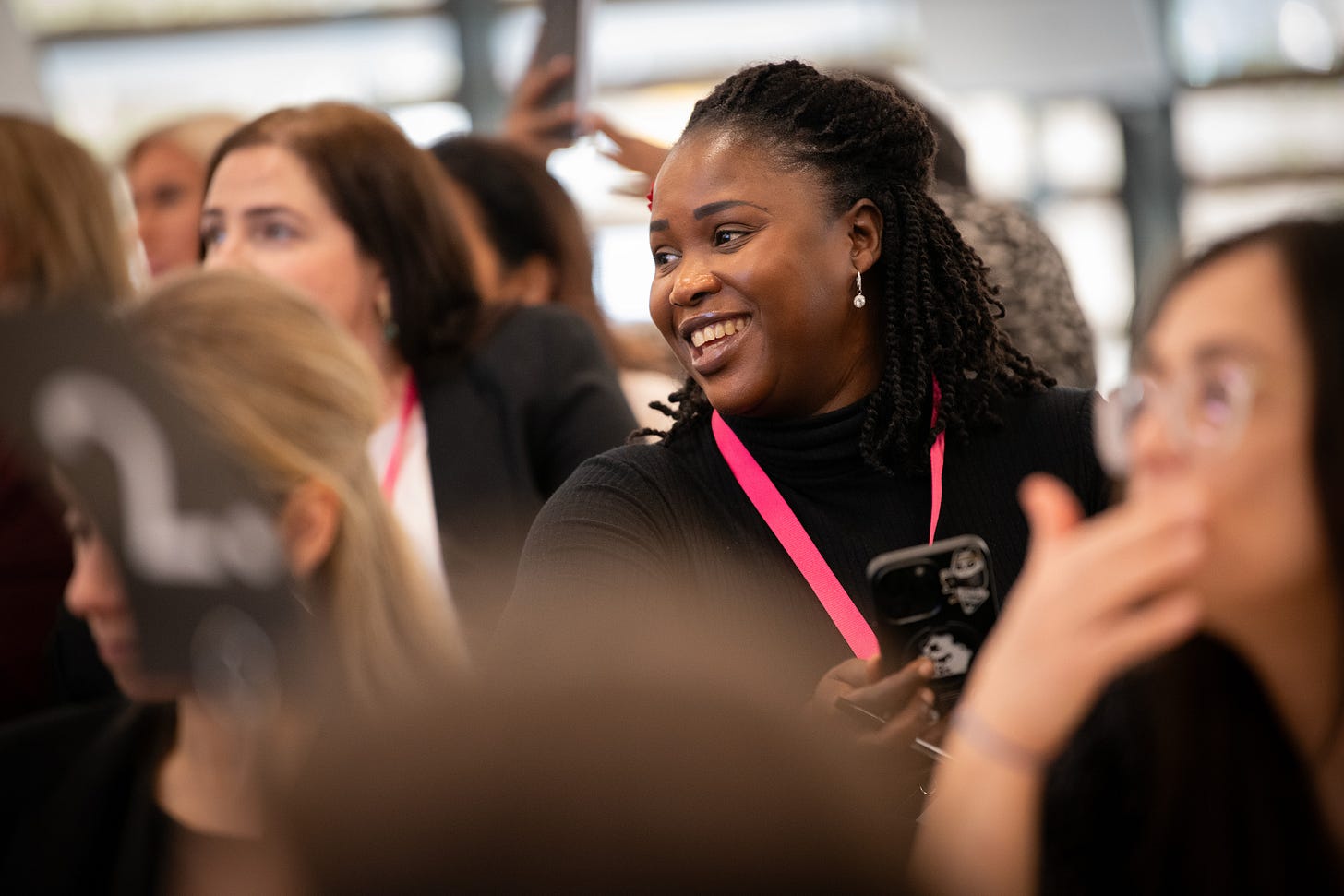I was sceptical about women’s development programmes. Then I went on one.
Last Autumn, I found out that my manager nominated me for Tesco’s Women’s Development Programme. My initial reaction was, “Oh, God”.
By Aji Bawo, Head of Product at Tesco
This article is paid for by Tesco
Never in a million years did I think that that girl back in the Gambia would become this woman.
I grew up there and studied computer science at university in the UK. While studying I worked in Tesco as a checkout girl because my parents couldn’t afford the fees.
When I finished, I joined Tesco’s technology division. I was the only black person, and one of four women out of 400 or 500. I genuinely thought I would not survive the first year. But now I’m 43 and I’ve been at Tesco half my life. I head up what we call the product life cycle team, leading a team of 23 product managers who deliver or manage a budget of over $20 million.
Sometimes, when you’re in a position like mine, people think “she’s had it easy”. But I’ve struggled. Working at the checkout years ago, we faced a lot of hassle from customers just around being black on the shop floor. Some of my early managers treated me like I didn’t exist. Where I’m from in Africa, people thrive on confrontation, so when I started my career I always said what I thought. It meant that I struggled to progress. On my first day back after maternity leave, my manager said to me that it felt like an inconvenience for him. But soon after I married and had kids, the whole culture in Tesco changed. It felt like a place that I could stay in.
I found out that my manager nominated me for Tesco’s Women’s Development Programme. My initial reaction was, “Oh, God”.
-Aji Bawo
Last Autumn, I found out that my manager nominated me for Tesco’s Women’s Development Programme. My initial reaction was, “Oh, God”. I was worried about my mostly male counterparts saying I was being singled out for being a woman, especially for being a black woman.
Then I got into the programme. I met these awesome women who, in every session we had, were always selling themselves short. Everyone was like, “I’m not confident. I’m not good enough”. It just drove me mad because I know most of those women would run rings around the men that they work with. None of them were confident in their skills and abilities to lead. That worried me. And it made me angry too. They’ve got so much to offer.
That’s when it clicked in my head: this is why this programme exists. I think the biggest gap women have is a lack of opportunity. We are massively underrepresented in senior roles, partly because women are not being considered for those roles. Tesco are not trying to reach a diversity quota. We're trying to make sure that those talented women are seen.
I’ve got two daughters, and my older daughter’s school results are brilliant. But she’ll often say, “I’m not sure I can do it”. We raise our boys to be risk-takers, and to do everything even if they’re not fully there yet, and we raise our women to think they have to be perfect.
I’m not perfect. I'm not organised. I go with the flow most of the time, which is really bad for someone with a team of my size. I’m very kind to myself in that I accept the fact that I will get it wrong. What I do really well, though, is accept when I've got it wrong and try and fix it. I always talk to the girls about being real: real models, not role models.
When I came to the UK, my first job was literally washing bowls. For me, getting to the next level at work would prove to every other person, especially my girls, that it doesn't matter what you look like. It doesn't matter where you come from. As long as you've got grit, you're passionate and you're willing to work hard, someone out there may see your potential.


